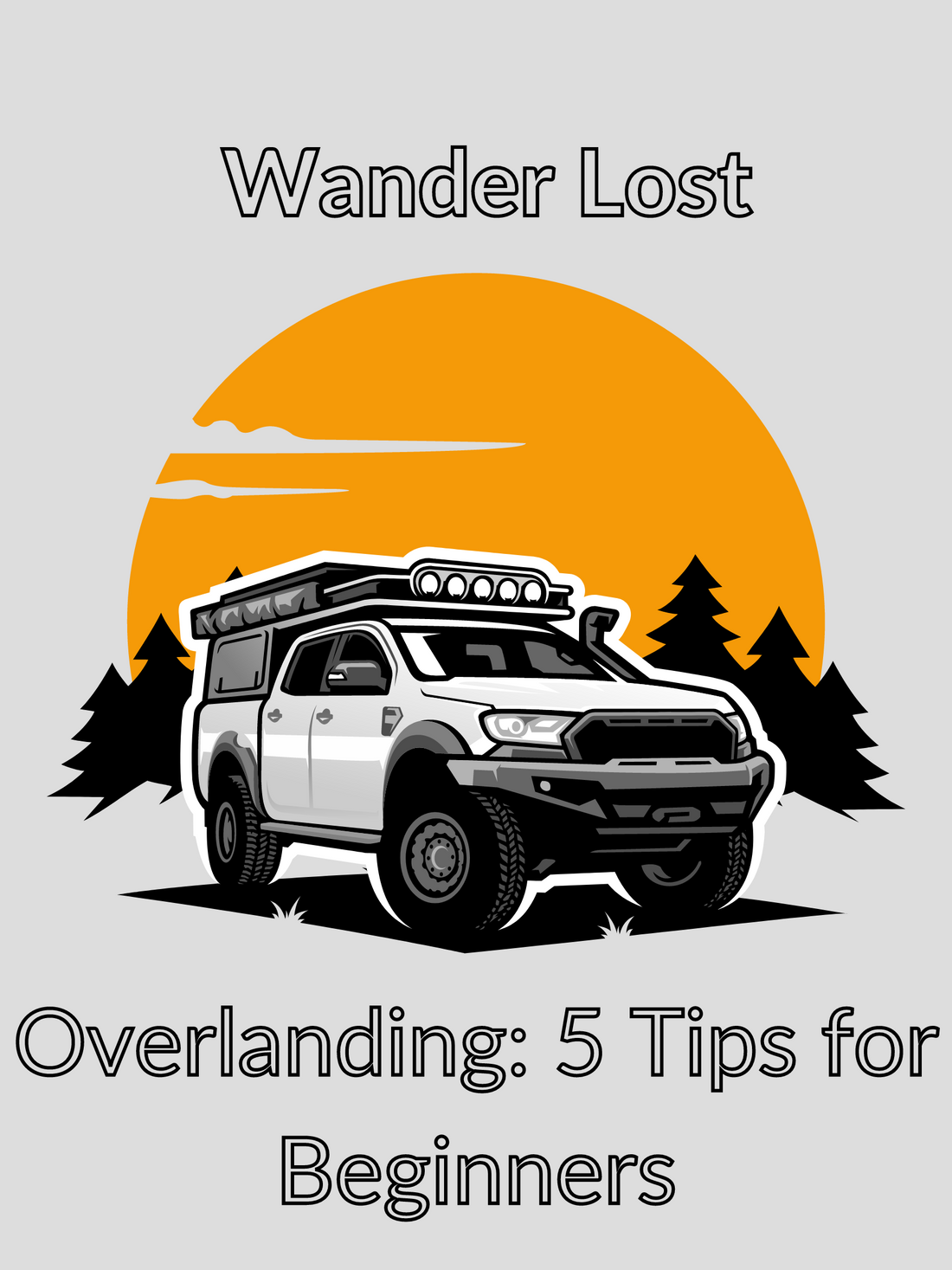
Overlanding: 5 Tips for Beginners
Share
Are you itching to escape the city and get out into the great outdoors? Have you been dreaming of a weekend camping trip or even a longer overlanding adventure? Getting started with camping and overlanding can feel overwhelming, especially if you're new to the world of outdoor adventure. But fear not, because with a little preparation and the right mindset, you'll be well on your way to exploring the beauty of nature.
In this guide, we'll take you through the basics of camping and overlanding, and give you some tips and tricks to make your outdoor adventure safe, comfortable, and enjoyable.
Choosing Your Destination
The first step in planning your camping or overlanding trip is choosing your destination. This can be a daunting task, especially if you're not familiar with the area you want to explore. A good place to start is by doing some research online. There are countless websites and resources available that can help you find the perfect camping spot or overlanding route. Some popular resources include:
- National Park Service: The NPS website is a great place to start your search for camping and overlanding destinations. They offer information on campsites and trails throughout the United States, as well as maps and other resources to help you plan your trip.
- AllTrails: AllTrails is an app and website that offers detailed trail maps and reviews from other hikers and campers. You can use it to find the best trails and campsites in your area, as well as get information on things like difficulty level, trail length, and elevation.
- iOverlander: iOverlander is a free app that offers information on overlanding routes, campsites, and other points of interest. You can use it to find campsites, fuel stops, and other resources while you're on the road.
Once you've done some research and narrowed down your options, it's a good idea to call ahead and confirm availability and other details. Some campsites and trails require reservations, and it's always a good idea to double-check before you hit the road.
Packing Your Gear
The next step in preparing for your camping or overlanding trip is packing your gear. This can be one of the most intimidating parts of the process, but with a little planning and preparation, you can make sure you have everything you need to stay safe and comfortable in the great outdoors.
Some essential items to consider packing include:
- Tent: Your tent is your home base when you're camping or overlanding, so it's important to choose one that's sturdy and easy to set up. Look for a tent that's appropriate for the season and climate you'll be camping in, and make sure it has plenty of ventilation and room for all your gear.
- Sleeping bag and pad: A good sleeping bag and pad will help you stay warm and comfortable at night. Look for a sleeping bag that's appropriate for the temperatures you'll be camping in, and consider packing a sleeping pad for extra comfort and insulation.
- Cooking gear: Whether you're planning to cook over an open fire or using a portable stove, you'll need some basic cooking gear. Consider packing a camping stove, cookware, utensils, and a cooler for storing food.
- Clothing: When you're camping or overlanding, it's important to dress appropriately for the weather and climate. Pack plenty of layers, including a warm jacket, rain gear, and sturdy shoes or boots.
- First aid kit: A basic first aid kit is essential for any outdoor adventure. Pack items like bandages, gauze, antiseptic, and pain relievers, as well as any prescription medications you need.
Planning Your Route
Once you've chosen your destination and packed your gear, it's time to plan your route. This is especially important if you're overlanding. When planning your route, it's important to consider factors like distance, terrain, and weather conditions. Make sure you have a map of the area and plan your route ahead of time, taking into account any potential hazards or obstacles.
If you're overlanding, it's a good idea to plan your route around established trails and roads. This will help you avoid damaging sensitive ecosystems and minimize your impact on the environment.
Make sure you have a plan for how long you'll be on the road each day, and where you'll be camping or stopping for the night. It's also a good idea to have a backup plan in case of unforeseen circumstances, like bad weather or unexpected road closures.
Staying Safe in the Outdoors
When you're camping or overlanding, safety should be your top priority. There are a few basic precautions you can take to help ensure a safe and enjoyable outdoor adventure:
- Check the weather forecast before you hit the road. Be prepared for changing weather conditions and pack appropriate gear.
- Tell someone where you'll be going and when you expect to return. This will help ensure that someone knows where to look for you if you don't return as planned.
- Be aware of potential hazards, like wildlife, steep drop-offs, or unstable terrain. Take appropriate precautions to minimize your risk.
- Practice good campsite hygiene to avoid attracting wildlife. Store your food securely and dispose of waste properly.
- Respect local rules and regulations, including fire restrictions and leave-no-trace principles.
Embracing the Adventure
Finally, it's important to approach your camping or overlanding adventure with the right mindset. Getting outdoors can be an incredibly rewarding and rejuvenating experience, but it can also be challenging and unpredictable.
Embrace the adventure and be open to new experiences. Take time to appreciate the natural beauty around you, and don't be afraid to step outside your comfort zone.
With a little planning and preparation, you can enjoy all the rewards that camping, overlanding, and getting outdoors have to offer. So pack your gear, plan your route, and hit the road for an unforgettable adventure in the great outdoors!
